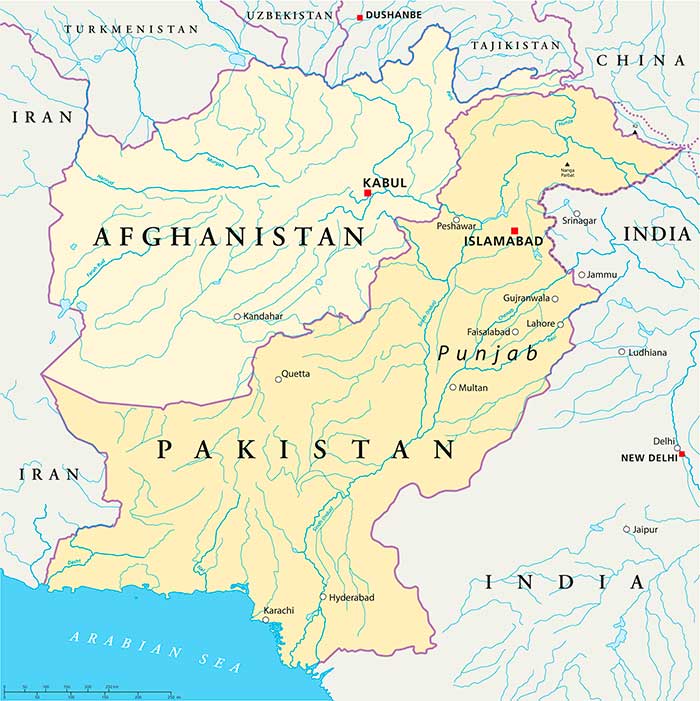Kazakhstan, Pakistan, Discussing Trans-Uzbek-Afghan Railway Routes To Arabian Sea
Serik Zhumangarin, Kazakhstan’s Minister of Trade & Integration has met with Shehbaz Sharif, Pakistan’s Prime Minister to discuss participation in the construction of the Trans-Afghan railroad.
This would involve routes heading south from Kazakhstan, across Uzbekistan, and Afghanistan before connecting with the Pakistan rail network south to Pakistan’s southern Arabian Sea Ports. From there, goods can be shipped throughout the Middle East, East Africa, India and elsewhere in South Asia.
As Kazakhstan is a landlocked nation, such a plan would provide it with ocean going port functionalities and access to new markets.
Zhumangarin said that Kazakhstan is interested in the successful implementation of the project and willing to consider different possibilities for its participation, including supplying materials. Cooperation in this field will increase the transit potential of both countries and open new avenues for bilateral cooperation.
Sharif said that Kazakhstan is welcome to use Pakistani ports to export goods to South-East Asia countries.

Discussions of building a Trans-Afghan railway have been in progress since the United States exited Afghanistan just over a year ago. The project would in part be an extension of the China-Pakistan CPEC corridor, which has effectively linked north and south Pakistan by highway and rail from the southern ports of Gwadar and Karachi to Islamabad. China is on board to develop highway and rail links through to Afghanistan, as is Uzbekistan, arguably the most difficult section to complete as this requires both a stable Afghanistan government – the Taliban – and still-conflicting factions to put down arms. Just ten days ago a terrorist attack targeted a Chinese-owned hotel in Kabul.
The involvement of Kazakhstan therefore makes sense – if the Trans-Afghan section can be completed. That is an issue that is likely to take some time. However, getting peace into Afghanistan would go a long way to enhancing Central Asian trade and moving it closer to South Asia. If it can be completed, a lot of Central Asian traders stand to make a lot of money – while regional governments can concentrate more on commerce and interconnectivity instead of military and security needs.
The signs though that Ministerial level discussions are being held at the highest regional levels is indicative that the desire is there – if Afghanistan can be settled down.
Related Reading





